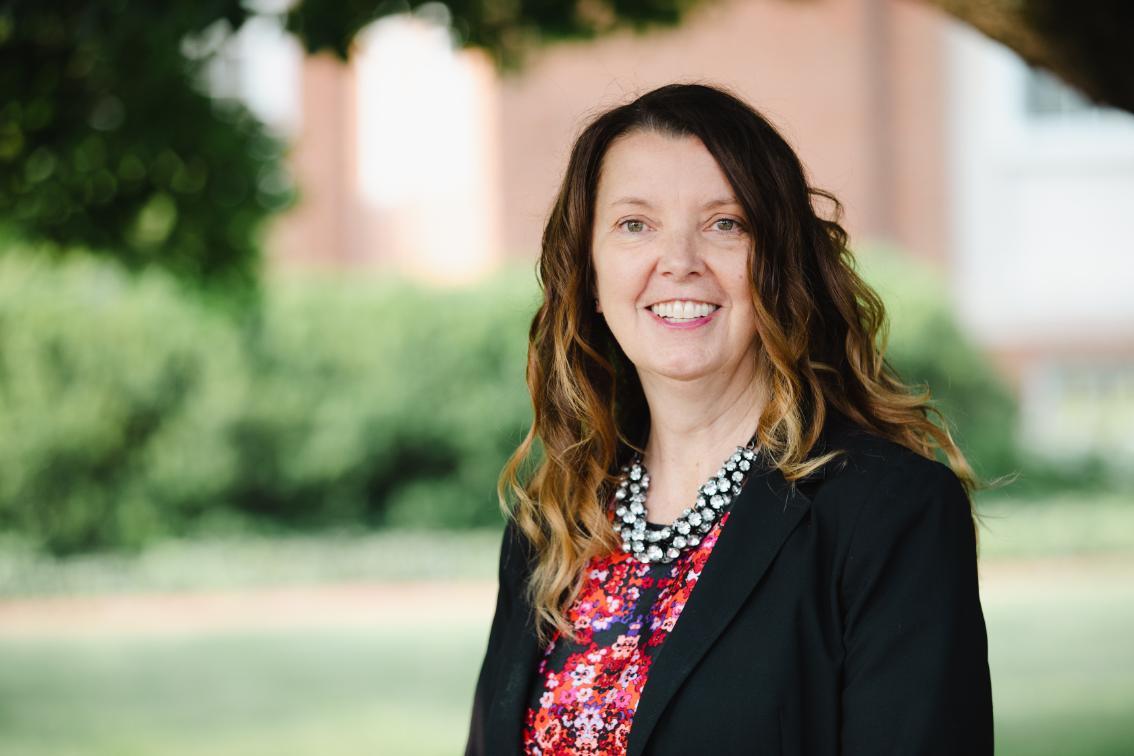


College life prompts a lot of questions about serious topics, including mental health. We took the opportunity to address head-on some of the most common questions we hear with the help of the people at Longwood who work most closely with these issues.
Q&A on Mental Health
Below we address campus mental health through a conversation with Maureen Walls-McKay, director of Longwood’s internationally accredited Counseling and Psychological Services Center (CAPS), where she’s worked since 1995.

Dr. Maureen Walls-McKay, PsyD
- Director, Counseling and Psychological Services Center (CAPS)
- License: Board of Psychology, Commonwealth of Virginia
- Experience: 24 years at CAPS as assistant director, associate director and now director
- Education:
- PsyD, Indiana University of Pennsylvania
- MA Psychology, Towson University
- BA Psychology, Indiana University of Pennsylvania
We know there’s been a tremendous increase in demand for mental health services at colleges nationally. What has been the story at Longwood?
This generation of students really does know how to self-advocate, and they are willing to ask for assistance, which is great. Nationally, an increasing number of college students is seeking counseling services at a rate outpacing the growth of enrollment fivefold. So it’s a generational shift. We’ve seen it firsthand here at Longwood. Over the past six years, CAPS has seen more than a 68 percent increase in clients and an 18 percent increase in scheduled individual appointments. The most common reason students come to see us is anxiety and stress, followed by depression. Most of the students we see aren’t in the midst of a crisis, but they need some help learning to relate to themselves and others in healthier ways. Many people, including highly successful students, experience significant benefits from participating in counseling.
In a broad sense, how does Longwood try to be responsive to the mental health needs and concerns of students?
The primary mission of CAPS is to serve the emotional and psychological needs of students. We provide individual and group counseling services. In addition, we provide psychological testing services for concerns such as ADHD and learning disabilities. CAPS partners with university well-being efforts by serving on the CARE Team, which meets weekly to address getting some students the additional resources they might need; providing educational programs to student groups, organizations and classes; contributing to the First-Generation College Student initiative; serving as academic coaches to first-year students; and serving on wellness committees.
What resources does the counseling center have? What does it mean that the Counseling Center is internationally accredited?
We have a team of four staff psychologists, a post-graduate resident in counseling, as well as a cohort of counselors in training who are graduate students from Longwood and other area universities. All of the members of our team have a general background in clinical psychology, so we are able to serve a wide variety of concerns. Longwood is one of fewer than 200 higher education institutions accredited by the International Association of Counseling Services (IACS), and one of nine such institutions in Virginia. Accreditation requires meeting a detailed set of quality standards and calls for institutions to make every effort to maintain certain staff-to-student ratios.
What’s the process like for a student who has a concern and seeks out CAPS?
Students come to CAPS with any variety of concerns. It can be adjustment concerns, eating/body-image concerns, relationship difficulties, depression, bipolar disorder, anxiety or substance-related issues. We address pretty much any issue or concern that someone would see a counselor or psychologist for. Often, before a student begins individual or group counseling, we ask that they complete at least two of the three in-house skill-building workshops. The workshops are designed to help students learn how to cope with strong emotions, build healthy relationships and more effectively manage stress — skills that really anyone can benefit from.
How do students make an appointment?
We maintain pretty robust caseloads at CAPS. Students can either call (434-395-2409), email (longwoodCAPS@longwood.edu) or walk in (we are located in the upper level of Pierson Hall (Health and Fitness Center) to request an initial consultation, which is a 30-minute session. Students complete some online paperwork in advance of the first appointment. Students can enroll in the workshops within a week of their completed initial consultation. From there, we may schedule individual or group counseling. Faculty and staff members also don’t hesitate to refer a student to CAPS.
Is the process confidential?
Yes. We always say that confidentiality is the foundation of the work that we do. What confidentiality means is that what we hear and what we see in CAPS, stays in CAPS. We don’t share or release information, except in certain cases when someone is in imminent risk and we have a duty to warn and protect. There are other exceptions to confidentiality that are discussed with each student at the initial consultation.
It’s important for students and families to understand the resources but also the limits of what an institution like Longwood can provide in terms of both mental and physical health care. What else do families need to know about what we can and cannot provide for students?
As a team, we had to sit down and look at what our scope of service is and acknowledge there are services we cannot provide. Our individual counseling is on an every-other-week basis. If a student needs or warrants weekly counseling, then we would recommend either group counseling, because it meets on a weekly basis, or we would provide a referral to a clinician back home or here in the Farmville area.
The complete Scope of Services (pdf) can be found on our website.
Is there any cost for CAPS services?
Most of the services we provide are available at no additional charge to students enrolled at Longwood. This includes individual and group counseling and our workshops. We do offer comprehensive testing for Attention Deficit/Hyperactivity Disorder (ADHD) and other learning disorders that involves an additional fee. These fees are substantially lower than what you’d find at community providers. While CAPS is unable to take insurance, we would be happy to help fill out reimbursement paperwork.
What does Longwood do if a student needs to see a psychiatrist?
When a student warrants psychiatric care or medication management, they are referred to a provider in their hometown or someone here locally. This may include our own University Health Center, which has a part-time psychiatric nurse practitioner on staff to provide in-depth psychiatric care and medication monitoring.
What does Longwood do if a student experiences a serious mental health crisis?
The Dean of Students Office and CAPS coordinate a plan for students who are in crisis. In most cases, the student is released to the care of the family and is required to complete a psychiatric assessment before returning to campus. When the student returns to campus, they meet with a member of the Dean of Students team to develop a behavioral contract to support their personal and academic success.
What would you tell prospective students or families who’ve experienced mental illness in high school and are considering Longwood—or any college? What are the most important things for them to consider?
Continuity of care is very important. If a student has had a pretty complex or complicated mental health history, we recommend that they maintain their relationship with their hometown psychologist or psychiatrist. If a student has had multiple medications or multiple hospitalizations, it’s important that they maintain the relationship that’s already established back home. This goes back to the CAPS Scope of Services (pdf) that we talked about earlier.
Many students have engaged in counseling prior to coming to college and continue their treatment at CAPS. My primary recommendation is for the student and parents to know about the many resources that Longwood provides to support the student’s personal and academic success. These include CAPS, University Health, Pierson Hall (Health and Fitness Center), the Office of Disability Recourses, the Writing Center, resident assistants, residence education coordinators, academic advisors and coaches, and many others.
Adolescence and the transition to college bring challenges to almost everyone, and many—indeed most—students experience periods of anxiety or mild depression. What advice do you have for students (and families) navigating these inevitable periods?
I think the most important step is for the student to become engaged and connected at Longwood. This connection can be with a roommate, a resident assistant, faculty member, staff member, academic coach and/or classmate. Or connections can be formed by joining a club or organization. Becoming connected is a powerful protective factor. Most people need to know that they are not alone. The support gained from connecting with others can be one of the most helpful steps toward well-being.
Contact Information
You can make an appointment either in person (in the upper level of the Health & Fitness Center) by phone (434-395-2409) or by email (longwoodCAPS@longwood.edu).
